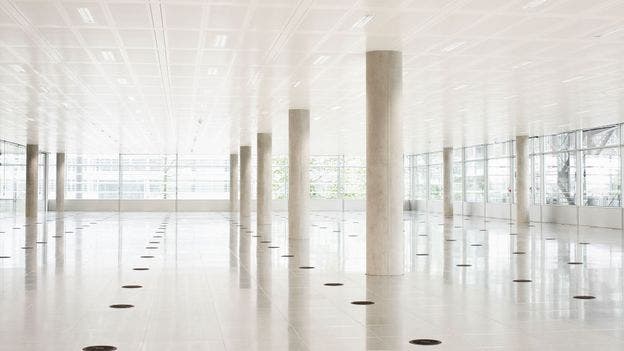Corporate real estate is on a 'cliff edge' as firms race to rethink communal spaces
As more employees work from home in the hybrid-work era, many companies are finding they need smaller offices. Compared to pre-pandemic floorplans designed to house as many workers as possible, more businesses are looking towards more compact but higher-quality spaces for the future.
According to figures from global commercial real estate firm JLL, 48% of clients in major markets, including the UK, Germany and France are seeking to decrease their footprints in the next three to five years as a result. “Our clients are working out what to do with the space they’ve got by analysing data from recent years to come up with long-term plans,” says Stephanie Hyde, CEO UK and CEO EMEA Markets at JLL. “In addition, many leases are expiring, companies are pressing ahead to meet sustainability agendas and they’re focusing on getting hybrid working right.”
This imminent corporate downsizing is set to have huge ramifications for the real estate industry. As more leases end, experts anticipate a tidal wave of available commercial space on the market. According to March 2024 data from workplace research firm Leesman, total space reductions could reach 40% across its global client base of 766 firms. Projected onto central London, if the same proportion of the city’s occupiers opt to reduce their footprints, this corporate downsize would be the equivalent to 56.6 million sq ft (5.26 million sq m) of office space.








Add comment